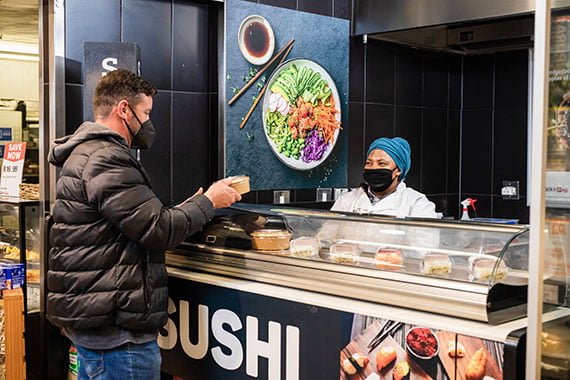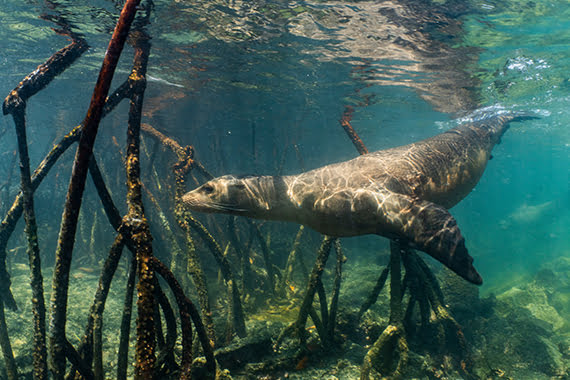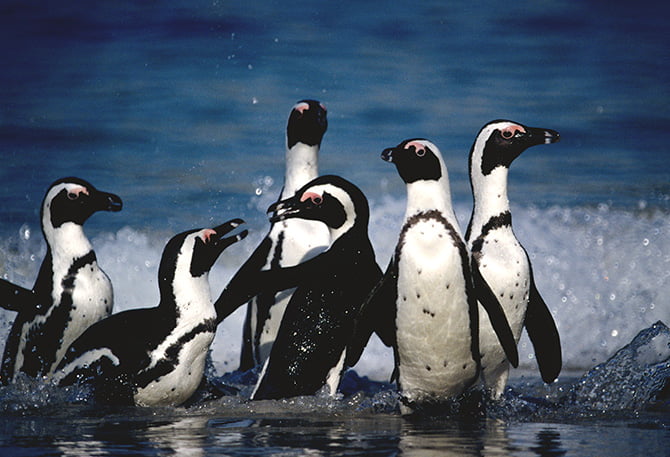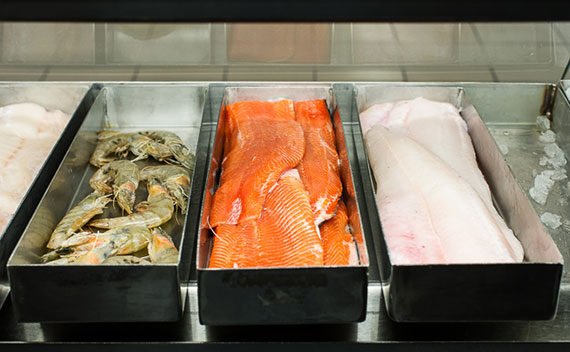Menu
We can all make a difference, whether consumers, retailers/suppliers, the culinary industry, fisheries or fishers!
A sustainable fishing & seafood industry benefits the oceans, marine animals, and the economy. It is harvested or farmed in a manner that does not harm the natural environment and maintains the long-term health and abundance of the species and their ecosystems. This helps to ensure healthy and resilient ocean ecosystems.
Among the solutions are increasing consumer awareness through WWF-SASSI’s initiatives, as well as through programmes that support fisheries and fisherman, such as FIPS, and improving supplier sustainability standards through certifications.
WWF-SASSI drives change in South Africa’s sustainable fishing & seafood industry, by informing and empowering consumers to make sustainable seafood choices and enabling seafood suppliers and sellers – addressing all aspects of the supply chain. WWF-SASSI has four main objectives, listed below, addressing all aspects of the seafood supply chain from the fisherman’s hook, via the seafood vendor, to your fork.
Seafood trading is driven by consumer demand. To help you make the best seafood choices, WWF-SASSI provides scientifically-based lists with a traffic light colour-coding to show which species are the most sustainable choices. As a consumer your two powers are your voice and your wallet. You can help us create a more sustainable seafood & fishing industry. Speak up and use the WWF-SASSI tools to make smarter seafood choices.
This information is easily accessible through WWF-SASSI’s many easy-to-use tools, including a credit card-sized pocket guide, a free app and a mobile SMS service.

Science is the backbone of WWF-SASSI and the basis of WWF-SASSI’s seafood list.
WWF-SASSI research has significantly improved understanding of the seafood market dynamics and sound and rigorous science underpins the WWF-SASSI list.
Developing the WWF-SASSI seafood list is an on-going, iterative process based on up to date peer-reviewed research and credible available information. This process along with an independent external panel review help protect our vulnerable species, fragile ecosystems and can even lead to changing regulations. New species are annually assessed and already listed species are regularly re-assessed to ensure the best information is available to seafood consumers and retailers and seafood sellers.

WWF-SASSI consults with the relevant Department of Forestry, Fisheries and the Environment departments and Scientific Working Group, relevant academic experts, other NGO technical experts, retailers, fishing industries and industry associations to ensure a comprehensive and inclusive consultative process before the final colours of an assessed species is finalised. This process takes up to 8-12 months to complete depending on input from all relevant stakeholders to ensure a fair and informed.

The Fisheries Programme of WWF-SASSI promotes sustainable fishing practices and supports the fishing industry’s transition to sustainability.
WWF-SASSI collaborates with fisheries, communities and other stakeholders to assess and improve operations, reduce bycatch, and protect vulnerable marine species. This programme has over the years contributed to the rehabilitation of several overexploited fish stocks in South Africa.
WWF-SASSI undertakes this work through tools such as Fishery Improvement Projects (FIPs) to achieve sustainability standards that are required by certification schemes such as the Marine Stewardship Council (MSC).
Seafood buyers and distributors such as restaurants, retailers, suppliers and processors play an essential role in the progress and success of FIPs activities, and the creation of long-term sustainability for the entire fishing and seafood industry.

Certified seafood allows consumers and businesses to make informed choices that support sustainable and responsible seafood production, helping to protect marine ecosystems and promote ethical practices within the seafood industry.
Certification is voluntary in the seafood sector, providing third party assurance that a product complies with specific sustainability standards, encompassing environmental practices and social responsibility. Certified seafood products are often labeled with a certification logo, making it easier for consumers to identify sustainable and responsibly sourced options.
Certification often involves various stages of the seafood supply chain, including fishermen, processors, distributors, and retailers. Each link in the chain must meet the relevant certification standards. In addition, maintaining certification requires ongoing monitoring and assessment.
Local certification organisations include the Marine Stewardship Council (MSC) which focuses on sustainable fishing practices, and the Aquaculture Stewardship Council (ASC) which certifies responsible aquaculture operations. Other organisations may have their own specific criteria.
Quick links
© WWF SASSI | WordPress website design and development by The Ethical Agency, a leading Digital Marketing Agency for sustainable brands | Website powered by green renewable energy website hosting.